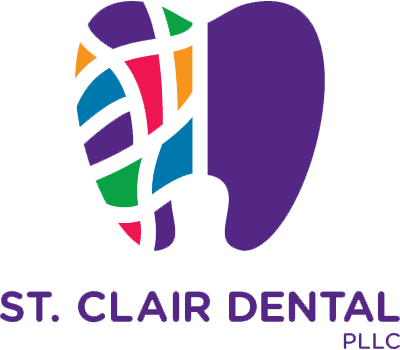Sleep apnea, a condition often associated with loud snoring and restless nights, is not just a sleep disorder; it can significantly impact oral health. This connection between sleep apnea and oral health is often overlooked, but understanding it can help you take proactive steps to protect your teeth, gums, and overall well-being.
Understanding Sleep Apnea
Sleep apnea is a disorder in which breathing repeatedly stops and starts during sleep. The most common type is obstructive sleep apnea (OSA), when the throat muscles intermittently relax and block the airway. This interruption in breathing can happen dozens of times per hour, leading to disrupted sleep and reduced oxygen levels in the blood.
The Oral Health Connection
While the primary concerns of sleep apnea often focus on cardiovascular health, the repercussions for oral health are equally important. Here’s how sleep apnea can affect your mouth:
1. Bruxism (Teeth Grinding)
One of the most common oral health issues associated with sleep apnea is bruxism or teeth grinding. Many people with sleep apnea grind their teeth unconsciously during the night. This grinding can lead to several problems, including:
- Tooth Wear and Damage: The constant grinding can wear down the enamel, leading to tooth sensitivity, fractures, and even tooth loss.
- Jaw Pain: Bruxism can strain the temporomandibular joint (TMJ), causing pain and discomfort in the jaw.
- Headaches: Persistent grinding can lead to tension headaches, particularly upon waking.
2. Dry Mouth
Sleep apnea often results in mouth breathing, especially during sleep. Mouth breathing dries out the oral tissues, leading to xerostomia, commonly known as dry mouth. A dry mouth environment is a breeding ground for bacteria, increasing the risk of:
- Cavities: Saliva plays a crucial role in neutralizing acids and washing away food particles. A lack of saliva can accelerate tooth decay.
- Gum Disease: The lack of moisture can lead to gum inflammation and increase the risk of periodontal disease.
3. Gum Disease
There is a growing body of evidence linking sleep apnea to gum disease. The chronic inflammation caused by sleep apnea can contribute to the development of periodontal disease. Inflammation in the body is interconnected, meaning the inflammation caused by sleep apnea can exacerbate the condition of the gums, leading to:
- Gingivitis: The earliest stage of gum disease, characterized by red, swollen gums that bleed easily.
- Periodontitis: If left untreated, gingivitis can progress to periodontitis, a more severe form of gum disease that can lead to tooth loss.
The Role of the Dentist in Diagnosing Sleep Apnea
Interestingly, your dentist might be the first healthcare provider to notice the signs of sleep apnea. During regular dental exams, dentists can spot indicators such as worn teeth, dry mouth, and inflamed gums that suggest a patient may have sleep apnea. Dentists trained in sleep medicine can collaborate with sleep specialists to ensure a comprehensive approach to managing the condition.
Treatment Options
Managing sleep apnea is crucial for maintaining both overall and oral health. Here are some common treatments and their impacts on oral health:
1. CPAP Therapy
Continuous Positive Airway Pressure (CPAP) therapy is the most common treatment for sleep apnea. While effective, CPAP machines can sometimes cause dry mouth, particularly if the mask does not fit well or if the patient sleeps with their mouth open. A dental appliance or humidifier can help mitigate this side effect.
2. Oral Appliances
Oral appliances, often prescribed by dentists, are designed to keep the airway open during sleep by repositioning the jaw. These devices are custom-made and can be an effective alternative to CPAP, especially for those with mild to moderate sleep apnea. However, it’s essential to have regular dental check-ups to monitor for any changes in bite or tooth alignment.
3. Lifestyle Changes
In many cases, lifestyle changes can also help manage sleep apnea and improve oral health. These changes include:
- Weight Management: Excess weight, particularly around the neck, can exacerbate sleep apnea. Losing weight can reduce the severity of the condition.
- Avoiding Alcohol and Sedatives: These substances can relax the muscles in the throat, worsening sleep apnea.
- Quitting Smoking: Smoking increases inflammation and fluid retention in the airway, aggravating sleep apnea.
Protecting Your Oral Health
If you suspect you have sleep apnea or if you’ve already been diagnosed, taking steps to protect your oral health is essential. Here are a few tips:
1. Regular Dental Visits
Schedule regular visits to your dentist, who can monitor your oral health and detect early signs of sleep apnea-related issues. Your dentist can also recommend specific treatments or adjustments to your oral hygiene routine to mitigate the effects of sleep apnea.
2. Use a Humidifier
If you’re using CPAP therapy, consider adding a humidifier to your routine. This can help reduce dry mouth and keep your oral tissues hydrated.
3. Stay Hydrated
Drink plenty of water throughout the day to help combat dry mouth. Avoid sugary drinks, which can increase the risk of cavities.
A Comprehensive Approach to Care
Managing sleep apnea requires a multidisciplinary approach, and your dentist is critical to this care team. By addressing both the sleep disorder and its oral health implications, you can achieve better overall health and a higher quality of life.
Sleep apnea might be a nighttime issue, but its impact on your oral health is an all-day concern. Taking proactive steps with the help of your dentist and other healthcare providers can make all the difference in protecting your smile and your health.
Understanding the connection between sleep apnea and oral health is the first step in protecting your overall well-being. By working closely with your dentist and following a comprehensive treatment plan, you can reduce the risks and enjoy a healthier life. Don’t let sleep apnea silently damage your oral health—take action today to ensure a brighter, healthier smile.
Sources:
- Ng, A., & Pavlin, D. J. (2012). Sleep Apnea and Oral Health: An Overlooked Connection. Journal of Clinical Sleep Medicine.
- Okuno, K., & Kurabayashi, T. (2017). The Effect of Sleep Apnea on Oral Health: A Systematic Review. Sleep Medicine Reviews.
- Thornton, W. K., & Clark, G. T. (2015). Bruxism and Sleep Apnea: A Comprehensive Review. Journal of Dental Sleep Medicine.

